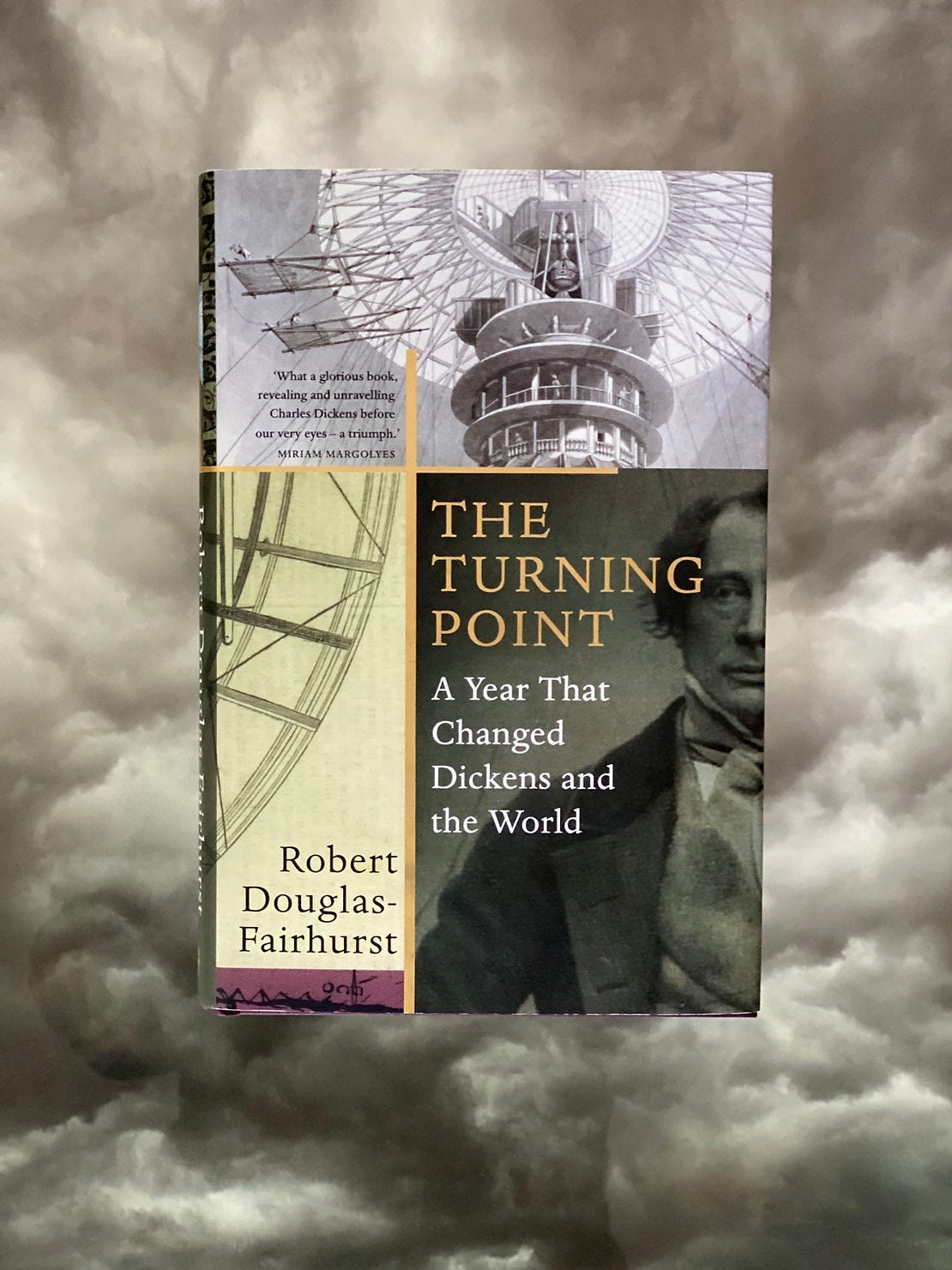Review of THE TURNING POINT: A Year That Changed Dickens and the World
This is really just a plug for BLEAK HOUSE ...
This is an idiosyncratic book that had was very dismissive of. I suspect we are all tired of the “year that changed” the world. As of late, the list has included (from memory) 1914,1919,1946,1968,1491,1492,1453, 1588 … the list is as long as history itself. Dates, years, decades and centuries give history the illusion of structure. The fact that it is continually revised, written by the victors and always subject to primary sources of dubious reliability makes our linear efforts at reductionism inevitable. I enjoy many of these reductions. Though they are forced and often a bit specious, they can serve as compelling and insightful portals into the vastness of history. It would be very hard, for instance, to not say that 2020 has already qualified for the top tier list of years though what defined the year politically began years earlier and the pandemics profound disruption had years ahead of it. As my Wall visually suggests, history does seem to concentrate. I never, however, anticipated 1851 as a year that “changed the world”. Despite terrific reviews, I ignored this book for just this reason. It all felt a bit much.
Next … I am not a great fan of straight up literary biography. Give it to me in the historical fiction construct of Colm Toibin or leaven it with memoir and that is different. As sweeping as this may sound, I too often find a writer’s life pales in comparison to the body of work and with few exceptions does little to bring me any closer to it. In fact, the less I know the better is a safe maxim. That said, I have tried to read about Charles Dickens because his books have shaped much of my love of literature with a few in the long term reread Rolodex. His social and political voice amidst the Victorian whirlwind gives a historical weight that is hard to ignore. I learned, however, that I did not like the man, nor did I find his life all that interesting. His life is best told in David Copperfield where it is pleasantly perched within a sea of beautiful writing and timeless literary themes. Again, I dismissed this book despite the fanfare.
I ordered the book from my favorite London bookshop (John Sandoe) intending it as a present to a particularly serious Dickens fan. I flipped through it and a week later finished it. I still think the title presumptuous and I still don’t care for Charles Dickens. Before this book, however, Crystal Palace has been more a mediocre Premier soccer team than anything else in my mind. I didn’t not know that when finished in the summer of 1851, it was a veritable glass cathedral six football fields in length. Brits of all classes got on a train for the first time to visit this tribute to the vast and growing British Empire and the dirty, dynamic, brutal Industrial Revolution driving it. So many people made a de facto pilgrimage to this fair that the profits built the Royal & Albert Museum and Hall as well as the Natural History Museum. The story of this Phoenix that rose and fell in Hyde Park resulted in one piece of marginalia (DNKT – Did Not Know This) littering page after page. It brought to mind the role of great expositions and fairs in our own history ranging from the World Columbian Exposition in Chicago in 1893 to the iconic World’s Fair in New York in 1939. Dates do serve their purpose with such events since their very creation is meant to serve as a marker in history.
As for Dickens, I could not wait to get to the end of the book. This is NOT a spoiler. You see it coming from the first pages. The end was a contextual and critical meditation on what is one of my five favorite books – Bleak House. This extraordinary novel (widely agreed to be his best) was begun in 1851 as a direct criticism of the grandiosity and messaging of the great fair. Dickens saw the Crystal Palace as a celebration of the concentrated wealth of the Empire, a distraction from the millions in Britain and around the globe living desperate lives at its service. Bleak House was his stunning response. To the adventurous few who have gotten this far in this review, please (please …) set aside a part of your life to read this novel that the author of this The Turning Point claimed left the world of fiction unalterably changed. Now … that is a reductionist claim I can live with.
The Turning Point: A Year That Changed Dickens and the World
Robert Douglas-Fairhurst
2021 291 pages


